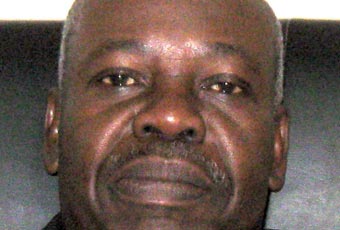
By Patrick Kagenda
John Wafula who has been the Chief Executive at Uganda Clays Kajjansi leaves office at the end of this year. The Independent`s Patrick Kagenda talked to him.
What have been the challenges during your time as CEO?
I joined Uganda Clays in Dec. 1992 and the biggest challenge we faced then was extremely low output especially of Mangalore tiles. Sometimes we could offload 300 tiles yet a house takes about 3,000 tiles. My team and I have overcome that big hurdle because one can now buy the tiles off-shelf.
What new thing did you bring to Uganda Clays?
My first instinct in management is to have people to do a job. I have built a very strong and dedicated team of young professionals. Most of my top managers are in their 40s. My second contribution has been on strategy. We have a very good strategy in conquering this line of business.
Do you think you made a wrong decision to expand to Kamonkoli?
That is the strategy I was talking about. We make very heavy clay products. So to conquer a market you must move closer to the customers. Moving to Kamonkoli was a wonderful decision. Kamonkoli was designed to serve the eastern and northern part of Uganda, Sudan and western Kenya. I have a feeling that western Kenya might be our biggest market in years to come. Kenyans are much wealthier than us and they really don’t have any good tiles at all.
What is the worst decision you ever made at Clays?
In 2001, I decided to retire. I was 54 and the then CEO accepted it. After my retirement, workers went on strike, the situation became very bad, and the CEO had to leave. The board called me back. One would have thought that my decision to leave at that time was not very wise given the subsequent event. Then in 2007, after my second contract I thought maybe I had served enough, but the board said no because of Kamonkoli. There is no error I have made simply because I have never made a decision alone. We have worked together and I am willing to share the credit with all my employees.
Given an opportunity, what would you do differently?
There are decisions which the company took at shareholder level which probably I think were not wise. The first one was this share split. I think 100:1 was not a very wise deal. My view is that our share price should have been 10:1 instead of 100:1. Second, because of the delays in Kamonkoli, the factory ended up costing much than it should have cost.
You are leaving when the company is making losses why?
I don’t think that is quite accurate. True up to 2008 we had been making profits. But the losses which we made last year are expected. They are arising out of a major investment. In business that is expected. We expected to make a loss this year and I am not leaving because of the loss.
The East African Common Market is in place finally. Won’t you miss it?
I was personally very active in gunning for it when I was director of the Uganda Manufactures Association. The Common Market is a very big deal for Uganda Clays. We are the biggest in the community in spite of our counterparts in Kenya producing at lower costs of production, but our quality is unmatched. So we should be able to compete very well in the market.
What are your best memories?
The job in Uganda Clays was tailor-made for me. It has been a challenging but exciting eighteen years I have spent here, first as company secretary for nine years and then CEO nine years. So I am carrying good memories for the company, the employees, and the board, especially the chairman, Prof. Ssenfuma. He has been my chairman since I became CEO in 2001.
What has been your management style?
First, I make sure I have a team. I have invested a lot of energy, thought, and a lot of money to make sure that we have good employees. Uganda Clays is a worker focused organisation in almost every way and I think that has been the basis of our success. We have put employees first and you have seen this through the awards we have got from Federation of Uganda Employers. The other issue has been to make sure that once we have the right people on board, we ensure that we work as a team.
How old are you?
In Feb. next year I will make 64. In Africa that is old age. However I am well preserved, I workout and I am fit.
So what is driving you into retirement?
I want to do my own things. Secondly, the company requires a change. I became CEO in 2001. That means my contract has been renewed twice in 2004 and 2007.
Are you ready for retirement?
I have a vision of what I want to do. Many people think retirement is about accumulating money in the bank, I think retirement is about having a correct attitude and having a vision of what you intend to do and making sure that you are not idle. I don’t believe people who think of accumulating wealth as a means of happiness. I am retiring without that crude accumulation of wealth. I have invested a bit in tree planting and my only ambition now is to get a tractor to help me in my work.
You are accused of killing off your competitors. Should they jubilate over your departure?
To be honest, I don’t think our competitors can really manage. They don’t motivate their workers. Many of their employees have left and they are with us in the marketing and production departments. If our competitors are to jubilate, they will be making a mistake because we have systems in place, it might even be worse for them.
 The Independent Uganda: You get the Truth we Pay the Price
The Independent Uganda: You get the Truth we Pay the Price


